Description
About Testosterone Undecanoate (Kyzatrex®) Capsules
KYZATREX® (testosterone undecanoate) capsules, CIII, is indicated for testosterone replacement therapy in adult males for conditions associated with a deficiency or absence of endogenous testosterone:
Primary hypogonadism (congenital or acquired)
Testicular failure due to conditions such as cryptorchidism, bilateral torsion, orchitis, vanishing testis syndrome, orchiectomy, Klinefelter syndrome, chemotherapy, or toxic damage from alcohol or heavy metals. These men usually have low serum testosterone concentrations and gonadotropins (follicle-stimulating hormone (FSH), luteinizing hormone (LH)) above the normal range.
Hypogonadotropic hypogonadism (congenital or acquired)
Gonadotropin or luteinizing hormone-releasing hormone (LHRH) deficiency, pituitary-hypothalamic injury from tumors, trauma, or radiation. These men have low serum testosterone concentrations but have gonadotropins in the normal or low range.
Limitations of Use
Safety and efficacy of KYZATREX® in males less than 18 years old have not been established.
WARNING: BLOOD PRESSURE INCREASES
KYZATREX® can cause blood pressure (BP) increases that can increase the risk of major adverse cardiovascular events (MACE), including non-fatal myocardial infarction, non-fatal stroke, and cardiovascular death.
Before initiating KYZATREX®, consider the patient’s baseline cardiovascular risk and ensure BP is adequately controlled.
Periodically monitor for and treat new-onset hypertension or exacerbations of pre-existing hypertension and re-evaluate whether the benefits of KYZATREX® outweigh its risks in patients who develop cardiovascular risk factors or cardiovascular disease on treatment.
Due to this risk, use KYZATREX® only for the treatment of men with hypogonadal conditions associated with structural or genetic etiologies.
Contraindications & Precautions
Contraindications
KYZATREX is contraindicated in patients with carcinoma of the breast or known or suspected carcinoma of the prostate; women who are pregnant (testosterone may cause fetal harm); patients with known hypersensitivity to KYZATREX or any of its ingredients; and men with hypogonadal conditions that are not associated with structural or genetic etiologies, as KYZATREX has not been established for these conditions and there is a risk of increased BP that can increase the risk of MACE.
Precautions
Polycythemia
Check hematocrit prior to initiation and every 3 months during treatment to detect increased red blood cell mass and polycythemia. If hematocrit becomes elevated, stop KYZATREX until the hematocrit decreases to an acceptable level. If hematocrit increases after KYZATREX is restarted, discontinue treatment.
Cardiovascular Risk
Long-term clinical trials have not been conducted to assess the cardiovascular outcomes of testosterone replacement therapy in men. Other studies have been inconclusive for determining the risk of MACE with testosterone use compared to non-use.
Worsening of Benign Prostatic Hyperplasia (BPH) and Potential Risk of Prostate Cancer
Monitor patients for worsening of signs and symptoms of BPH. Evaluate patients for prostate cancer prior to initiating and during treatment with androgens.
Use in Specific Populations
Females
KYZATREX is contraindicated in pregnant women and is not indicated for use in females.
Pediatric Use
The safety and efficacy of KYZATREX in pediatric patients less than 18 years old have not been established. Use in pediatric patients may result in acceleration of bone age and premature closure of epiphyses.
Geriatric Use
KYZATREX clinical studies did not include patients ≥65 years. It is unknown whether these patients respond differently from younger adult patients or have an increased risk of cardiovascular disease and prostate cancer. Geriatric patients treated with androgens may be at risk for worsening of signs and symptoms of BPH.
Interactions
Insulin
KYZATREX can cause changes in insulin sensitivity or glycemic control. Androgens may decrease blood glucose requiring a decrease in the dose of anti-diabetic medication
Oral Vitamin K Antagonist Anticoagulants
Anticoagulant activity may be seen with androgens. More frequent monitoring of international normalized ratio (INR) and prothrombin time are recommended in patients taking warfarin, especially at initiation and termination of androgen therapy.
Corticosteroids
Concurrent use of testosterone with corticosteroids may increase fluid retention and requires careful monitoring, particularly in patients with cardiac, renal, or hepatic disease.
Medications that May Also Increase Blood Pressure
Concomitant administration of medications drugs known to increase BP with KYZATREX may lead to additional BP increases.
Adverse Reactions / Side Effects
The most common adverse reaction of KYZATREX (incidence ≥ 2%) is hypertension (2.6%).
Venous Thromboembolism (VTE)
VTE, including deep vein thrombosis (DVT) and pulmonary embolism (PE), have been reported in patients using testosterone. Discontinue KYZATREX if VTE is suspected and initiate appropriate workup and management.
Abuse of Testosterone and Monitoring of Testosterone Concentrations
Testosterone has been subject to abuse, typically at doses higher than indicated and in combination with other anabolic androgenic steroids. If abuse is suspected, check testosterone levels to ensure they are within therapeutic range. Counsel patients concerning the serious adverse reactions associated with abuse and consider the possibility of abuse in suspected patients who present with serious cardiovascular or psychiatric adverse events.
Potential for Adverse Effects on Spermatogenesis
Large doses of androgens can suppress spermatogenesis. Inform patients of this risk before prescribing KYZATREX.
Edema
Edema may occur in patients with pre-existing cardiac, renal, or hepatic disease. In addition to discontinuing KYZATREX, diuretic therapy may be required.
Sleep Apnea
KYZATREX may potentiate sleep apnea in some patients, especially those with risk factors such as obesity or chronic lung disease.
Lipid Changes
KYZATREX may affect serum lipid profiles. Monitor patient lipid concentrations periodically; if necessary, adjust dosage of lipid lowering drug(s) or discontinue KYZATREX.
Other warnings include:
Hepatic adverse effects from prolonged use of high doses of methyltestosterone; gynecomastia; hypercalcemia in cancer patients; and decreased thyroxine-binding globulin.
Pregnancy
KYZATREX is contraindicated in pregnant women and is not indicated for use in females.
Storage
Store this medication at 68°F to 77°F (20°C to 25°C) and away from heat, moisture and light. Keep all medicine out of the reach of children. Throw away any unused medicine after the beyond use date. Do not flush unused medications or pour down a sink or drain.
References
KYZATREX [prescribing information]. Raleigh, NC: Marius Pharmaceuticals; 2022.

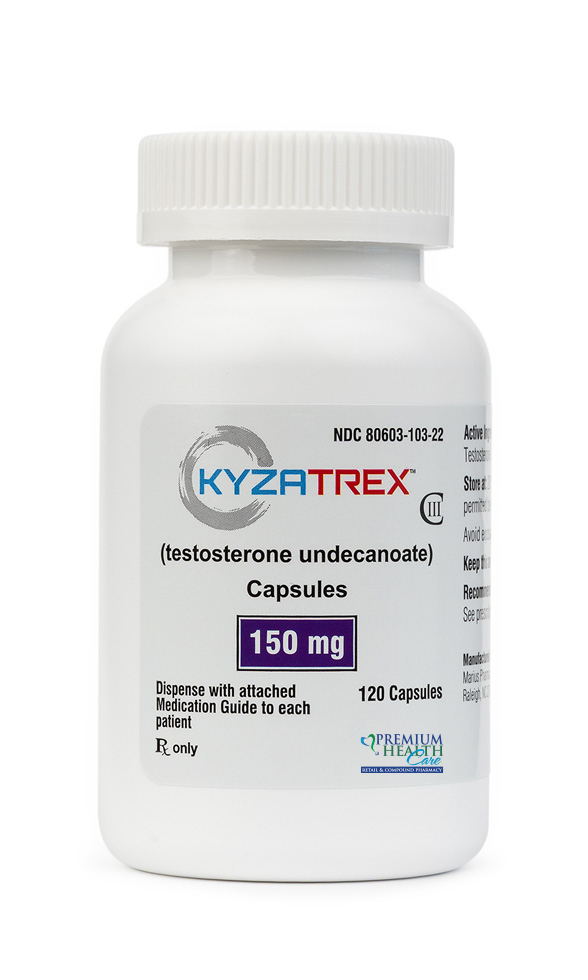
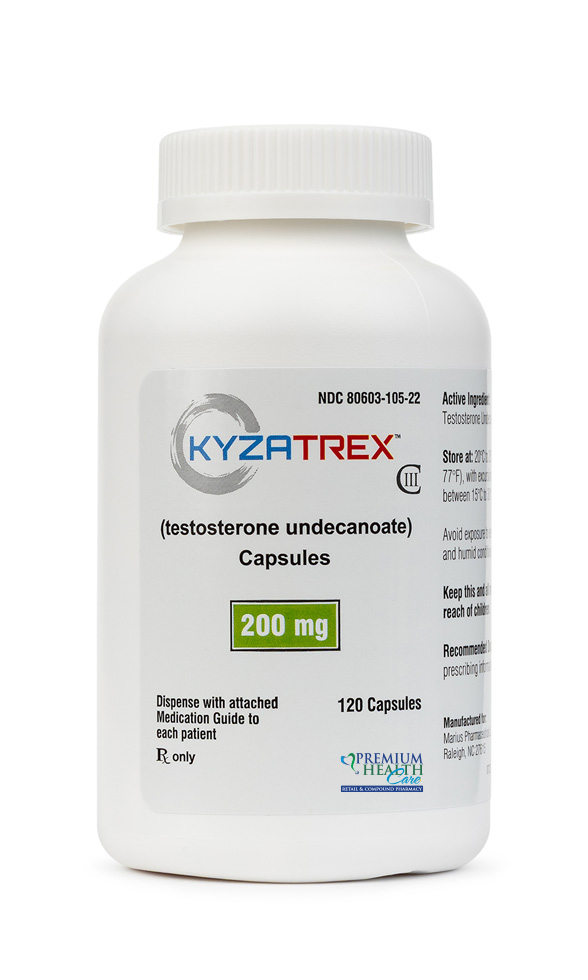
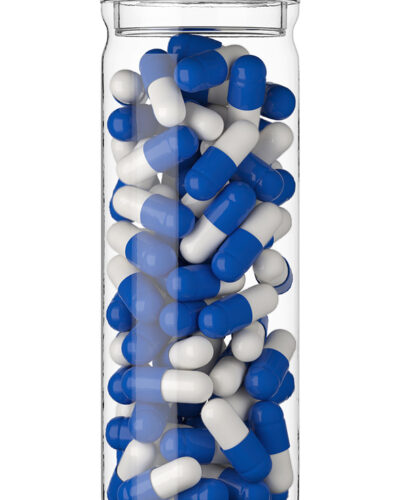
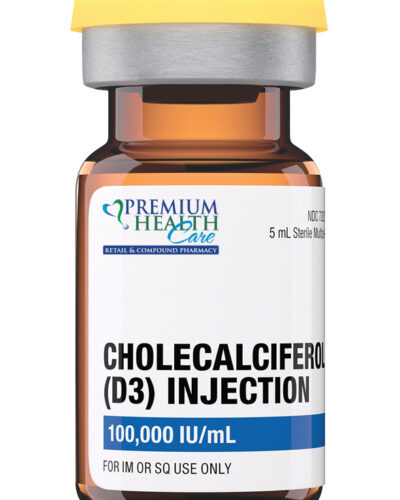

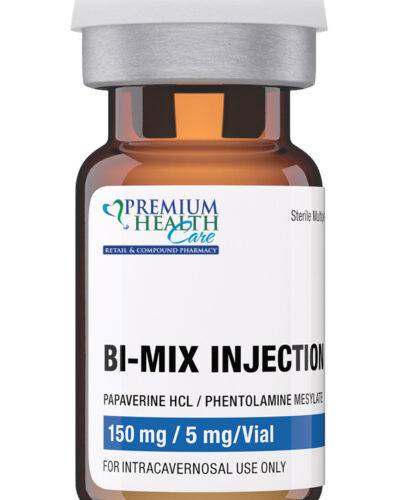
Reviews
There are no reviews yet.